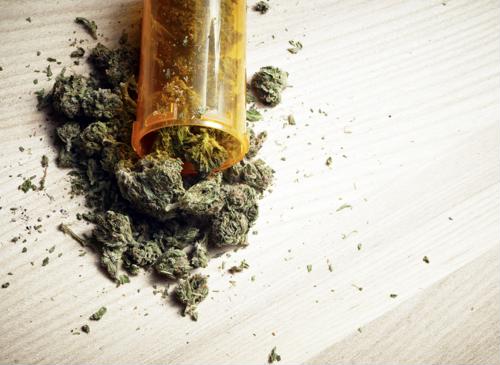While still considered a Schedule I narcotic by the Drug Enforcement Administration and thus entirely illegal on a federal level, most American states have legalized cannabis for medical use and either eliminated or notably reduced the criminality of recreational marijuana. Interestingly enough, the number of states (nine) in which marijuana is still both fully illegal and strictly criminalized is less than the number of full-legality states (10, not including the District of Columbia), which leaves 30 states with medical legality, decriminalization or some combination thereof.
All things considered, it's an exciting time for those looking to enter the marijuana economy in one way or another, especially would-be proprietors who are based in the states where it's fully legal. But it's also critical to pay attention to the industry's regulations, particularly the guidelines regarding cannabis pesticides. Read on to review some key aspects of pesticide use in several states:
Oregon
The Oregon Department of Agriculture closely regulates pesticides applied to cannabis plants for medical, recreational and industrial use (the latter in the form of hemp), and most recently updated its guide to pest-control substances July 29. Those looking to determine whether a pesticide should or shouldn't be used on cannabis plants should consult the list before making any decision on how they treat their crops. It's a complicated list with notes on more than 400 products, so it may be prudent to seek the advice of chemical experts before choosing or eschewing a given product.
ODA did make a point of noting that various samples of state-grown marijuana had recently tested positive for pyrethins and piperonyl butoxide at levels that could be hazardous. While these are both less dangerous than some of their counterparts, they still pose significant risks to aquatic life.
Massachusetts
Few states have cannabis pesticide regulations quite as strict as those imposed by the Commonwealth of Massachusetts. Per the state's Cannabis Control Commission, no pesticides whatsoever can be used on marijuana or hemp that is cultivated for sale in Massachusetts in any form, including hemp. This has frustrated some in the cannabis business, according to Mass Live, mostly because the dispensaries that were temporarily shuttered due to pesticide violations had used organic chemicals approved by the state for use on food crops.
Jim Smith, an attorney for Massachusetts cannabis business Good Chemistry, told the news provider, "The compounds we want to use are pesticides that are on your blueberries, strawberries, raspberries with your morning breakfast."
Colorado
As the first state in the U.S. to legalize recreational marijuana, Colorado has in many ways set regulatory groundwork that several states who followed its lead would adopt (to varying degrees). It permits cannabis growers to use a fairly broad spectrum of pest-control products, though the majority of them list natural plant oils, bacteria and a variety of other biological fungicides, insecticides and herbicides as their active ingredients. The chemical-based pesticides that are legal mostly contain small percentages of sulfur or hydrogen peroxide.
The Colorado Department of Agriculture also specifically forbids the use of several pesticides in the cultivation of cannabis plants. Notable examples include BotaniGuard, Conserve SC from Dow AgroSciences, Kontos, GreenCure, Monterey Garden Insect Spray and Mycotrol O.
Nevada
The Nevada Department of Agriculture does not technically permit any pesticide to be used on cannabis plants – at least not in terms of there being registered "cannabis-safe" pest-control products. However, it does consider a number of pesticides to be "minimum risk" and thus exempt from registration, which is de facto legalization. Much like in Colorado, the registration-exempt pesticides include various oils (castor, peppermint, clove, corn, cottonseed, garlic, lemongrass, thyme and soybean) as well as lauryl sulfate, white pepper and salt.
The NDA also does not bother to penalize marijuana growers for the use of certain pesticides registered with the Environmental Protection Agency, including numerous bacteria and certain low-toxicity chemicals, but other EPA-registered substances are forbidden, like etoxazole, pyrethrin and bifenazate, among others. Additionally, according to Las Vegas ABC News affiliate KNTV-13, Nevada marijuana testing labs are particularly vigilant in their efforts to prevent mold and microbial contamination, so cultivators should be wary of this fact if they want to operate in the Silver State.



